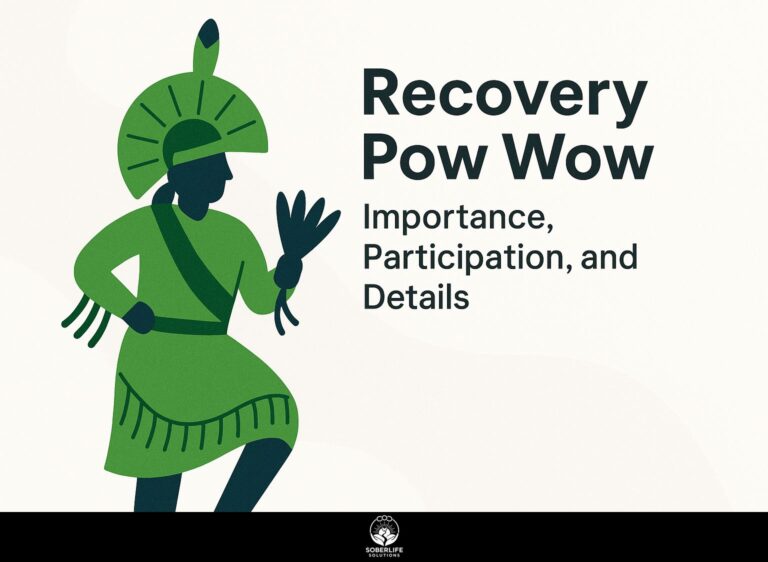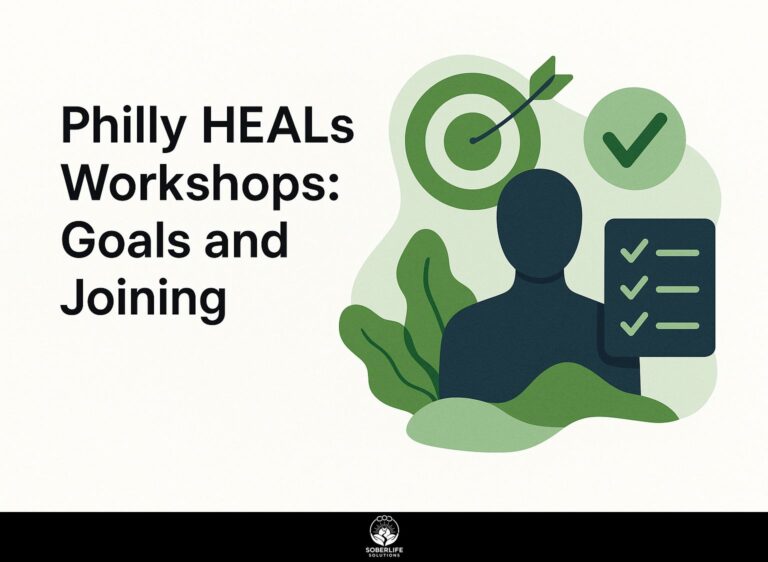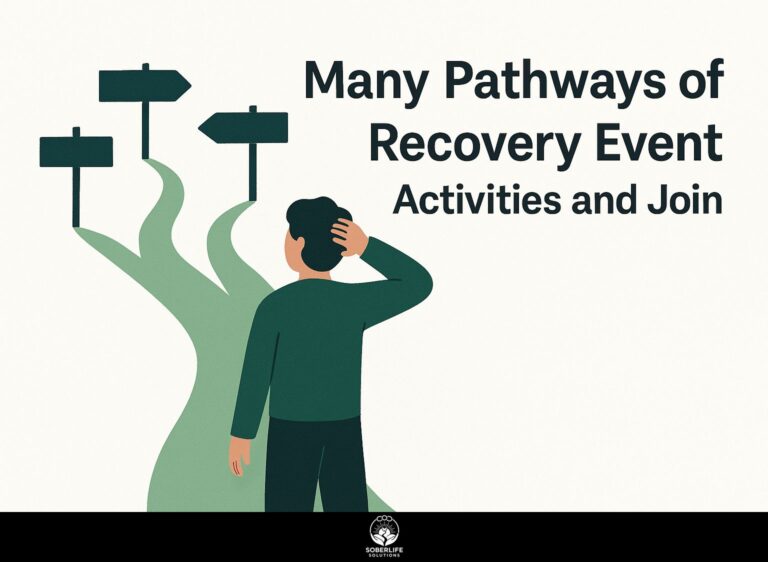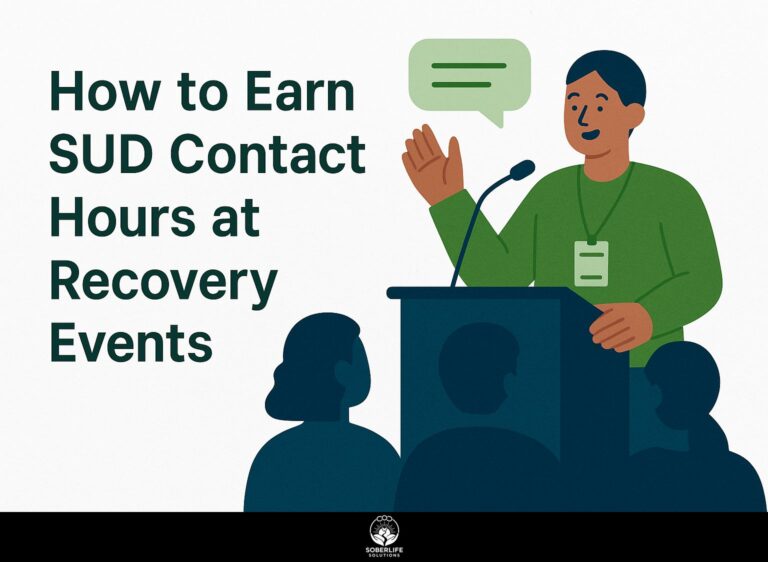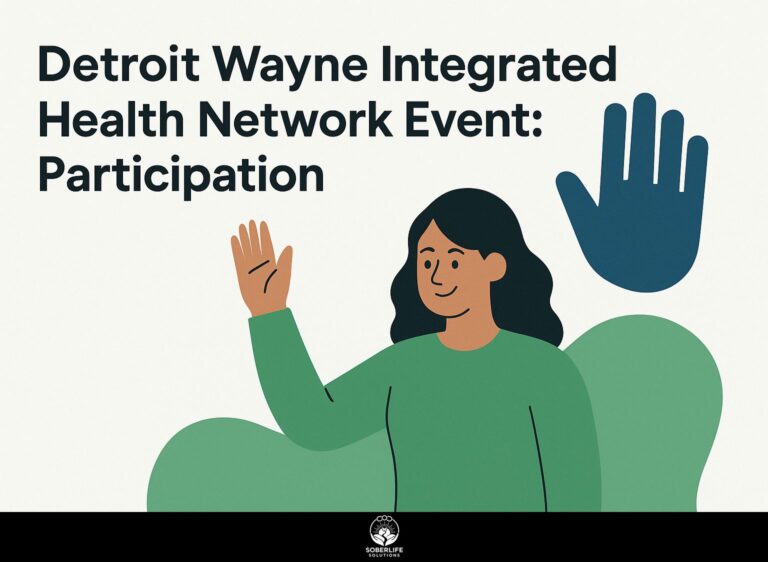Crushing Stigmas Summit: Overview and Key Activities
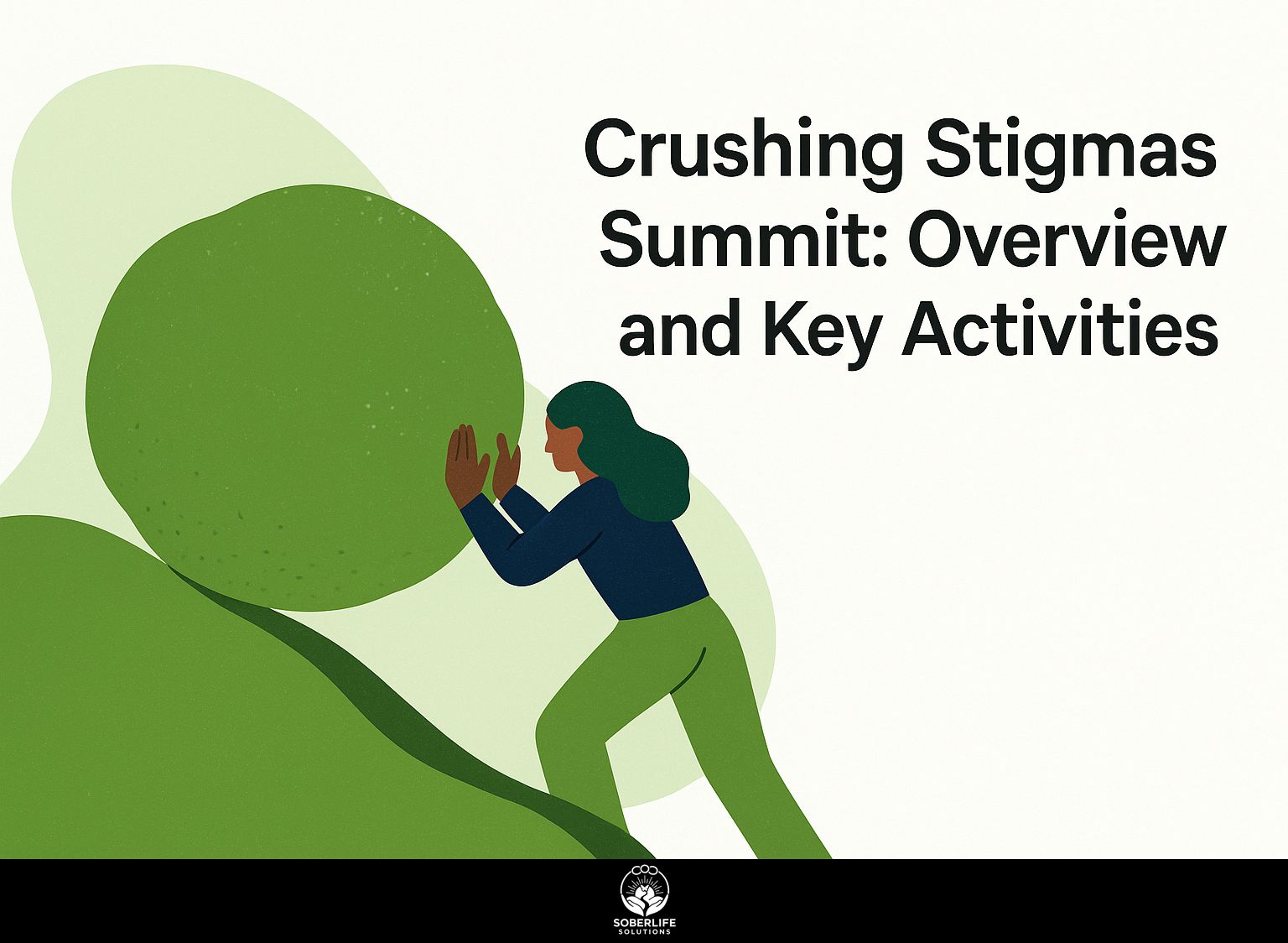
Introduction to Crushing Stigmas Summit
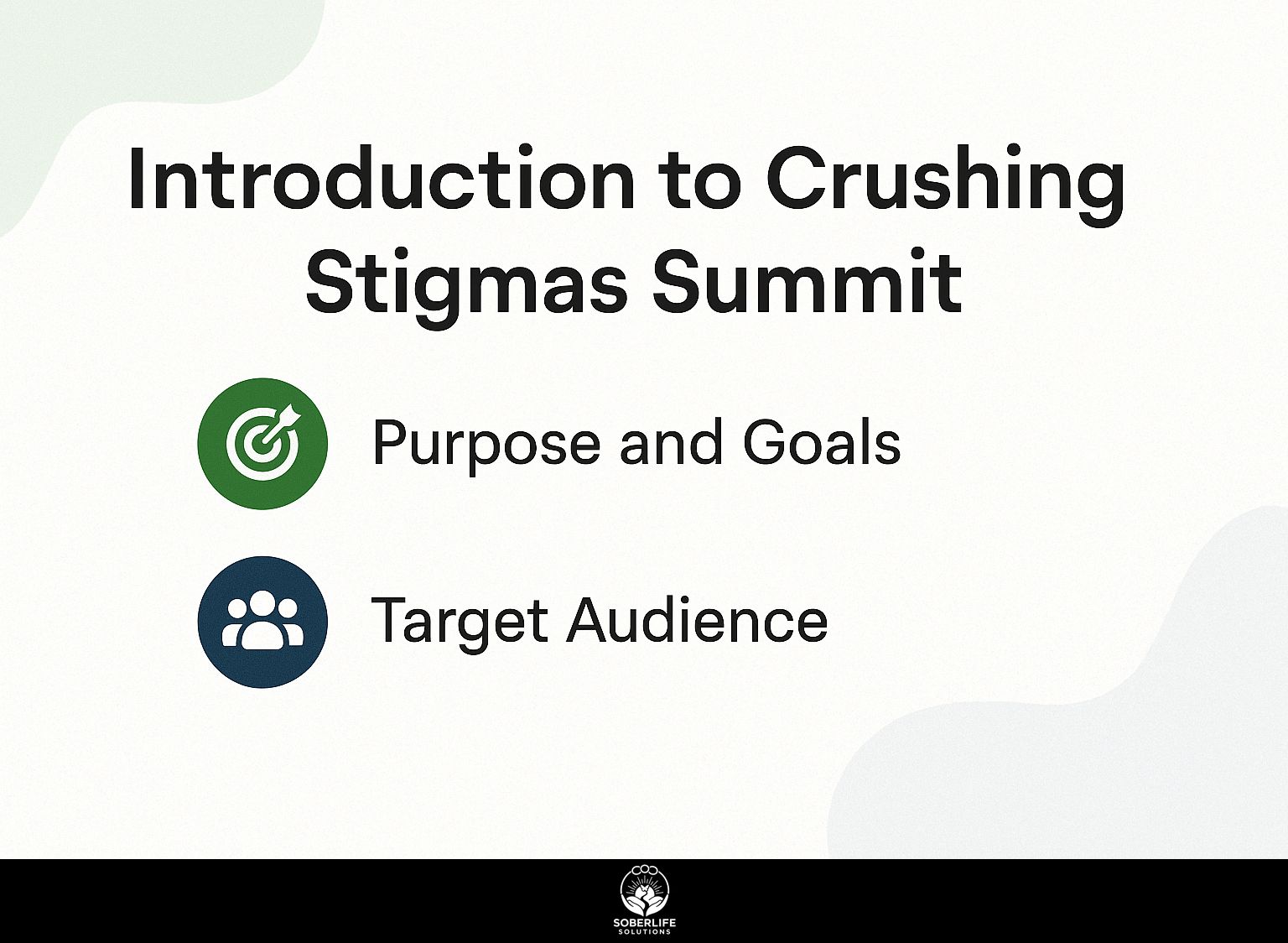
Join the Crushing Stigmas Summit, a key event for mental health professionals interested in developing their communication skills and knowledge. This event, organized by Summit BHC and headed by Janis Ellington with help from the American Foundation for Suicide Prevention, is designed to build relationships and knowledge. Learn how to join workshops and discussions focused on changing the way we talk about mental health.
Key Takeaways:
Purpose and Goals
The summit focuses on equipping professionals with the latest strategies and tools to combat stigma and improve mental health outcomes, specifically in areas like suicide prevention and trauma-informed care.
Participants will learn practical information on important topics. For those interested in expanding their knowledge on stigma, our recent exploration of addiction stigma awareness campaigns provides valuable insights.
For example, workshops will include trauma-aware methods like the Adverse Childhood Experiences (ACEs) approach, which aids professionals in comprehending how trauma affects behavior.
Sessions will discuss how to communicate effectively in tough situations, focusing on methods such as active listening and ways to calm things down.
By the end of the meeting, attendees should have a better idea of how to put these strategies into action, improving help for those who need it.
Target Audience
Targeting mental health professionals including counselors, psychologists, and social workers, the summit also caters to veteran families and addiction recovery advocates.
This varied group is important for encouraging joint conversations about mental health. By including veterans’ families, the summit opens channels for real-life experiences that highlight unique challenges.
Addiction recovery advocates provide knowledge about the challenges of having both mental health and substance abuse issues, and the importance of community support. These stakeholders can work together to create combined plans that tackle mental health and substance use issues, leading to better treatment plans and support systems.
Working together improves awareness and promotes new ideas in intervention services and local programs.
Keynote Speakers
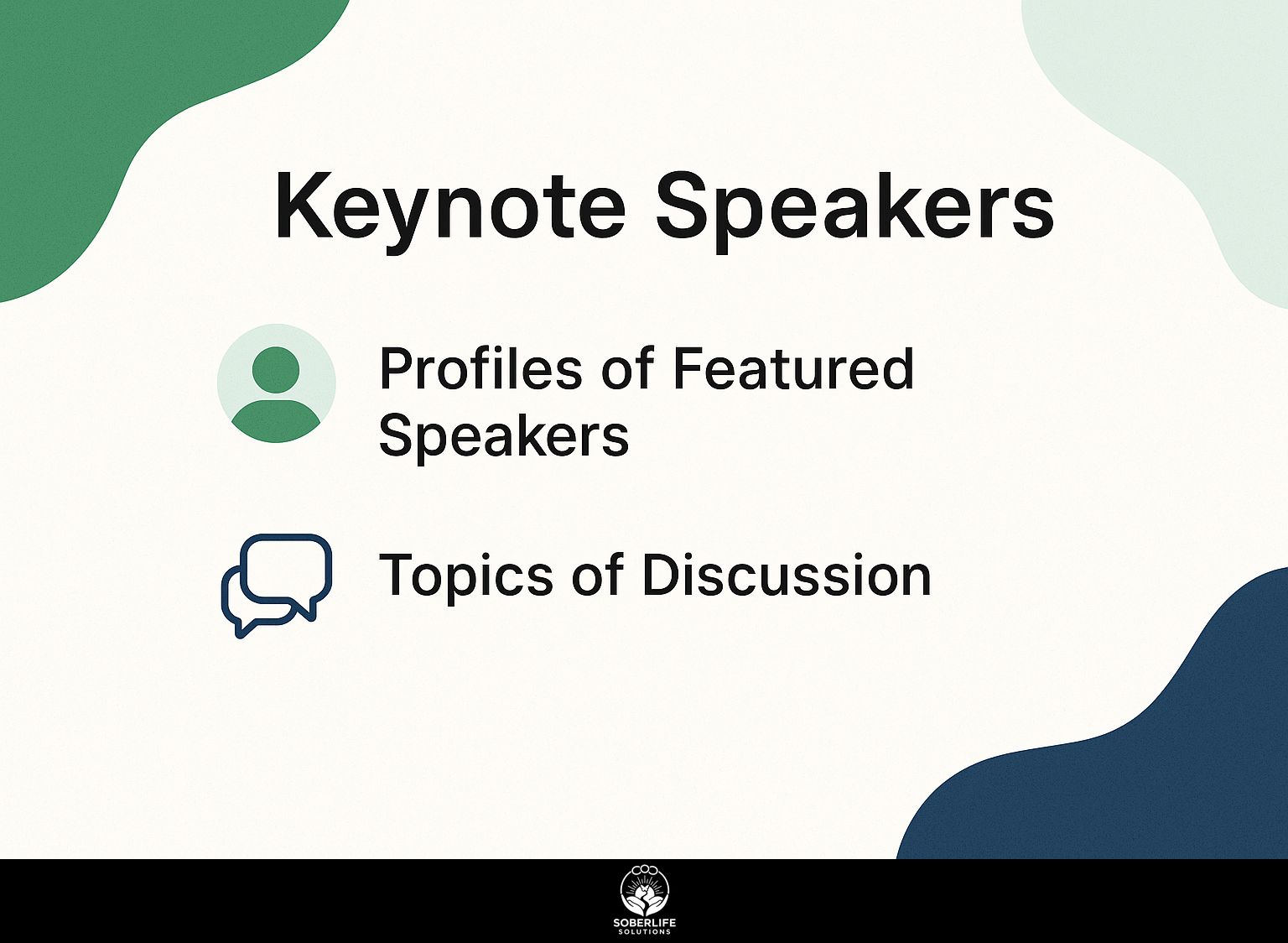
An important part of the summit is the group of notable keynote speakers, each sharing their views on mental health and ways to reduce stigma.
Profiles of Featured Speakers
Featured speakers include Gary Mendell, a pioneer in addiction recovery advocacy, and Kathryn Burgum, known for her work in cultural responsiveness and mental health support.
Gary Mendell founded the non-profit organization Shatterproof, focusing on reducing the stigma of addiction and improving treatment. Attendees will hear about practical advocacy strategies and personal stories that drive change.
Meanwhile, Kathryn Burgum’s session will focus on including cultural awareness in mental health practices, highlighting practical methods to help various groups of people. Her skills will provide tools to build friendly environments, which is important for those interested in learning about mental health support in our varied community.
Topics of Discussion
The topics covered will include psychosexual evaluations and practical trauma-informed methods in therapy, focusing on a wide approach to mental health issues.
Key topics will cover why psychosexual assessments are important for learning about patients’ histories, which can help in creating personalized treatment plans.
Effective methods for dealing with trauma, like EMDR (Eye Movement Desensitization and Reprocessing), will be shown for their success in lowering trauma symptoms, as explained by the American Psychological Association in their detailed overview of EMDR therapy.
We will look into how mindfulness methods help people manage stress. Each topic covers important mental health problems, giving attendees useful skills to improve their therapy methods (our guide to holistic therapy principles provides a comprehensive approach to integrating these techniques).
Workshops and Breakout Sessions
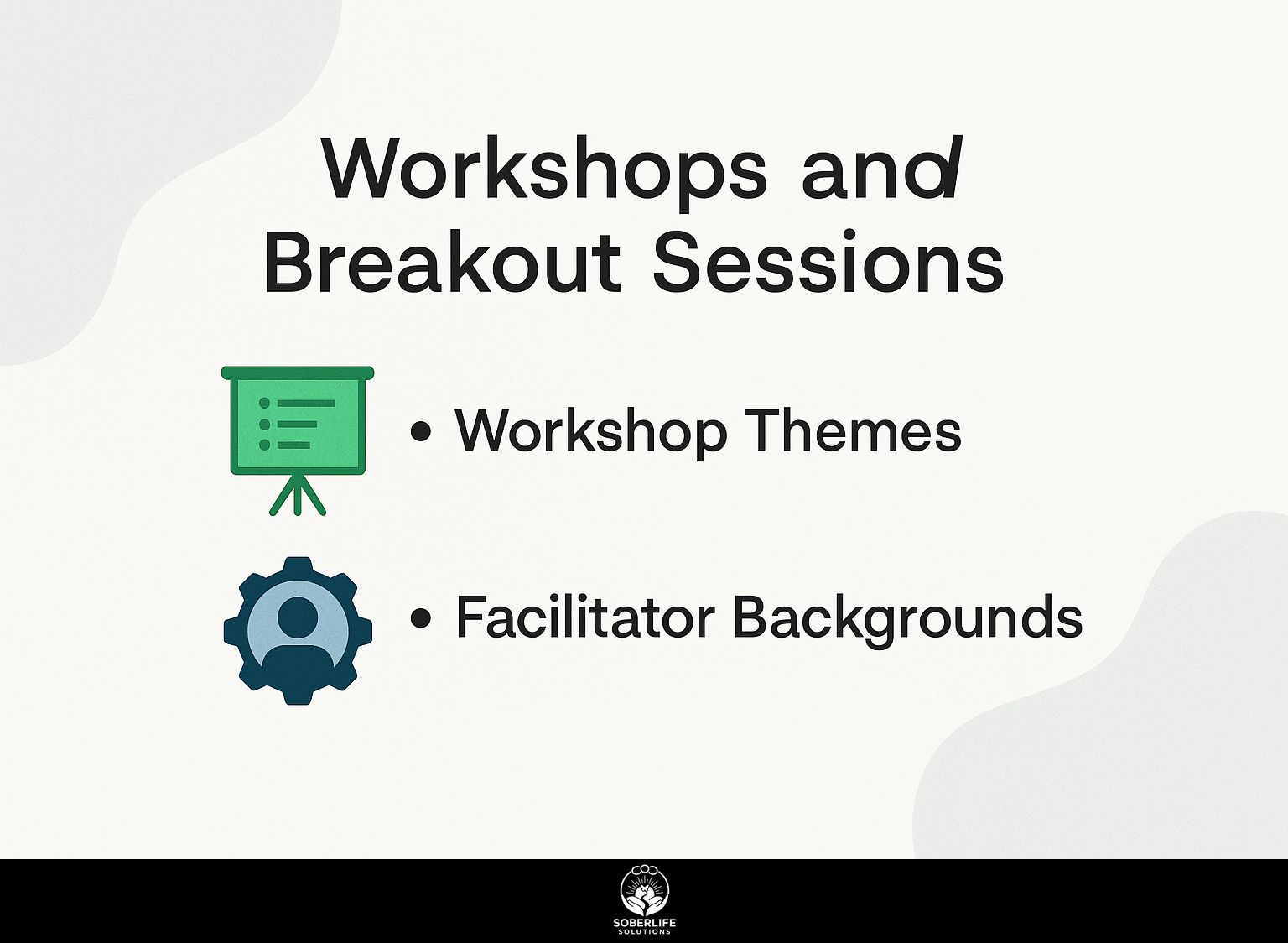
The summit includes different workshops aimed at teaching participants about important mental health topics and improving their practical abilities. This holistic approach allows attendees to explore various strategies for maintaining sobriety and preventing relapses. Learn more about effective relapse prevention techniques and how they can enhance your recovery journey.
Workshop Themes
Workshop themes include addiction recovery strategies, trauma-informed care practices, and effective de-escalation techniques in high-conflict situations.
Each theme addresses critical areas for professionals in mental health and social services.
For instance, addiction recovery strategies equip attendees with evidence-based approaches to support clients in various stages of addiction, as detailed by SAMHSA’s Evidence-Based Practices Resource Center.
Trauma-informed care practices focus on recognizing how trauma affects behavior, leading to better interactions and results for clients.
Knowing how to settle disagreements peacefully helps manage situations and creates a secure environment.
These workshops offer not just theoretical knowledge but actionable tools that can be implemented in day-to-day practice.
Facilitator Backgrounds
Leaders like Christina Rogers from Shatterproof have a lot of knowledge in dealing with trauma and helping people recover from addiction. They lead important conversations.
Rogers has over ten years of experience helping people recover, using effective methods to help them regain strength and heal. Her background includes developing community programs focused on supportive environments for trauma survivors.
James Liu, a clinical psychologist, integrates mindfulness-based techniques into his work, emphasizing emotional regulation and coping skills. Their combined efforts make a strong team, helping participants get useful tools and knowledge to support their recovery process effectively. This approach is aligned with the benefits of mindfulness-based stress reduction as outlined by Verywell Mind, which highlights how these techniques can enhance emotional resilience.
Networking Opportunities
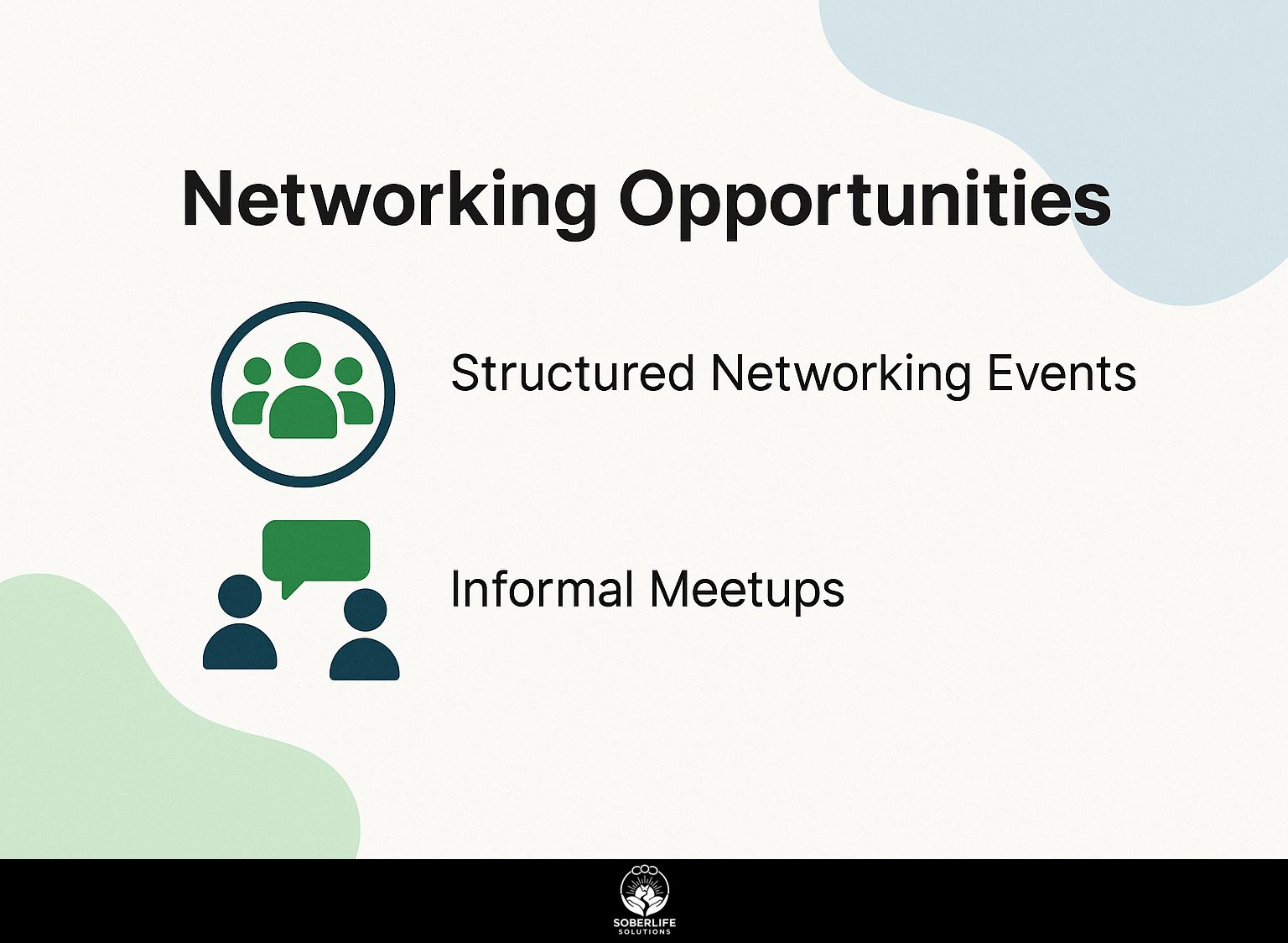
The summit offers chances for mental health professionals to meet and work together even after the event. Understanding how to leverage Broaden-and-Build Theory in treatment can further enhance collaborative efforts and growth among attendees.
Structured Networking Events
Structured networking events will allow participants to engage in focused discussions on critical topics such as mental health crises and effective communication tools.
To improve interaction, begin with activities that make people feel comfortable and willing to share.
For instance, consider small group discussions where participants share personal experiences related to the topics. Introduce a ‘speed networking’ segment where individuals rotate and have brief, meaningful conversations.
Use Q&A sessions with knowledgeable people to encourage thoughtful discussions.
By including these activities, participants can build relationships that continue after the event, forming a long-lasting support system centered on common problems and answers.
Informal Meetups
Informal meetups will provide a relaxed atmosphere for attendees to exchange ideas and support, particularly among veteran families and addiction recovery advocates.
These gatherings often focus on shared experiences, allowing participants to discuss challenges and celebrate victories in a supportive setting.
For example, a meetup might have a roundtable talk on ways to deal with challenges, allowing participants to share personal stories that connect with others. Inviting guest speakers, like local therapists or recovery coaches, can offer helpful information and practical tips.
Websites like Meetup.com or local community boards can organize these events, ensuring everyone feels welcomed and included.
Resource Distribution
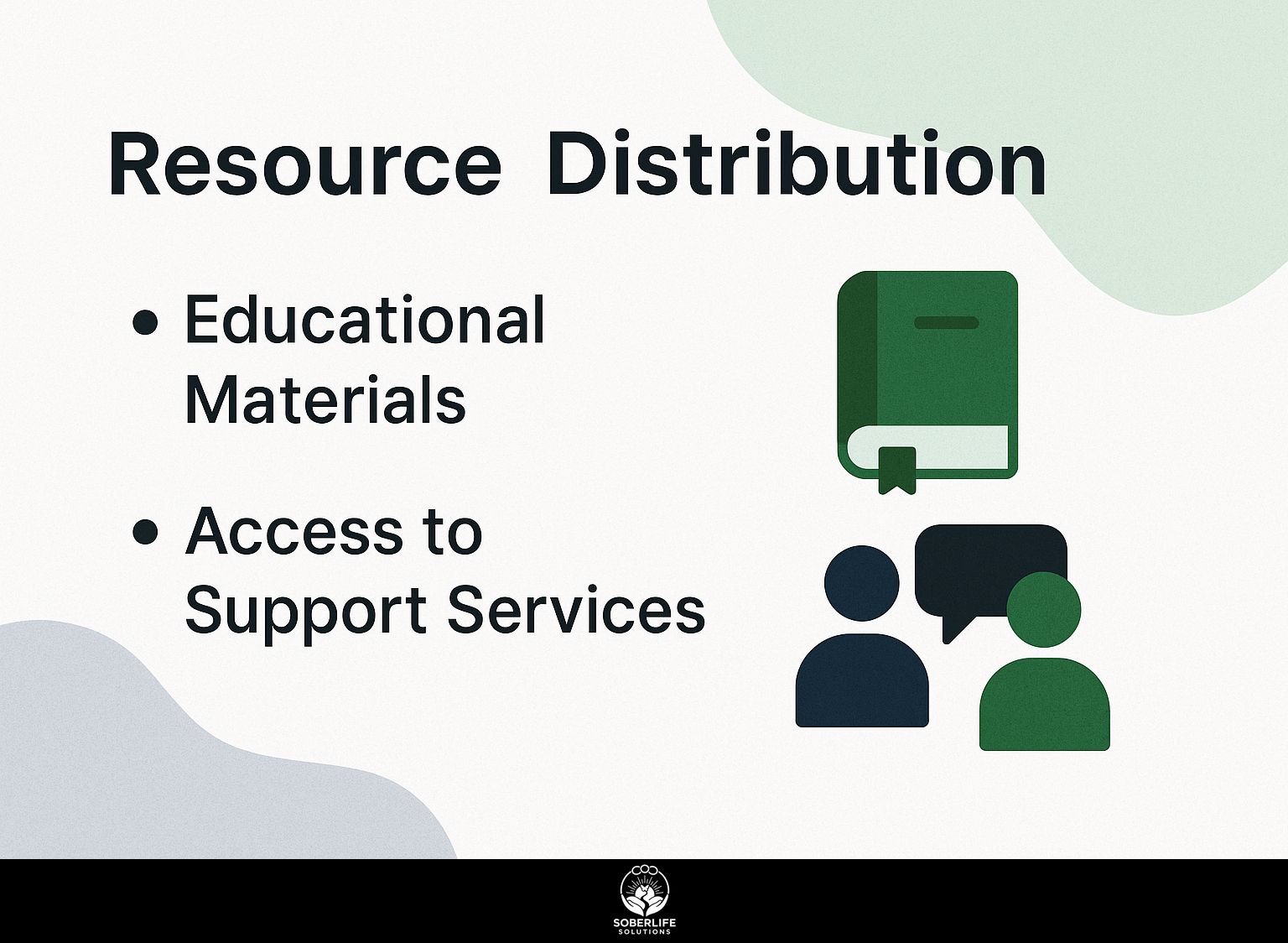
Resources given out at the summit make sure attendees return home with useful tools and knowledge to use in their work.
Educational Materials
Attendees will receive educational materials covering topics such as cultural responsiveness and strategies for addressing mental health crises effectively.
The materials will include hands-on workshops, real-life examples, and resource guides created to improve practical skills.
For example, a workshop on cultural awareness will include role-playing exercises that help participants handle real-life situations with care.
Case studies will show examples of effective actions taken during mental health emergencies, along with questions to promote group learning.
Attendees will get access to online resources such as webinars and articles for further learning about these important subjects after the event.
Access to Support Services
Participants will have access to support services, including referral networks for addiction recovery and trauma-informed care resources.
These support services improve the summit experience by linking mental health professionals with important tools and networks.
For example, the referral network allows attendees to partner with local addiction clinics, streamlining the process of finding help for clients.
Workshops on trauma-informed care provide actionable strategies and resources, such as screening tools and intervention techniques, which professionals can implement in their practices immediately.
This team-based method improves the learning experience and builds a supportive group for those involved.
Feedback and Evaluation
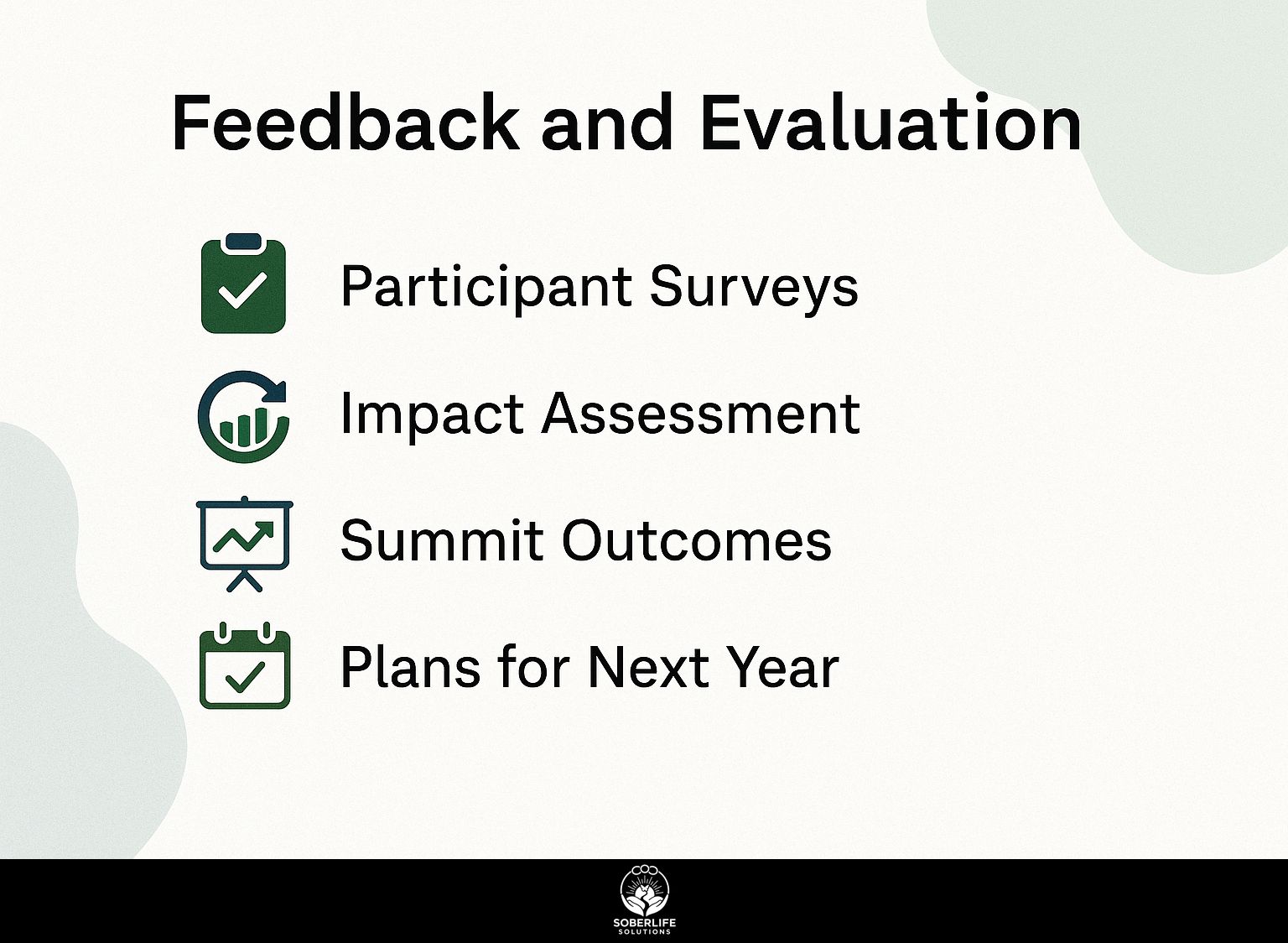
The summit uses methods to collect feedback and review its effects on attendees and the wider community.
Participant Surveys
We will share surveys to collect feedback from participants about their experiences and what they learned from the sessions they attended.
These surveys will focus on key areas such as session relevance, presenter effectiveness, and overall satisfaction. Participants will be asked to rate their experiences on a scale of 1-5 and provide open-ended feedback on what they found most beneficial.
For instance, specific questions may include:
- ‘Which session did you find most impactful?’
- ‘What subjects should be included in upcoming meetings?’
This focused feedback helps improve content and make sure upcoming events match what participants want and need.
Impact Assessment
After the summit, we will carry out an impact assessment to evaluate changes in how participants comprehend and handle stigma and mental health issues.
To effectively assess the summit’s impact, focus on three key metrics: participant surveys, behavioral changes, and follow-up interviews.
- Start by distributing surveys before and after the event to gauge shifts in knowledge and attitudes.
- Track specific behavioral changes by observing participants in their respective settings over the following months.
- Hold follow-up interviews three to six months later to collect detailed feedback on long-term outcomes.
Using both numerical and descriptive data will give a full view of the summit’s impact.
Summit Outcomes
The summit will result in practical plans and better networking opportunities for mental health experts dedicated to fighting stigma in their communities.
Attendees can expect specific resources, such as toolkits for implementing stigma-reduction programs and access to case studies showcasing successful community initiatives.
Post-summit, a dedicated online platform will share summaries of key discussions, recorded sessions, and a list of participants for ongoing collaboration. An engaging newsletter will highlight innovative practices and upcoming events to keep the conversation alive.
By building these relationships and exchanging information, we work to establish a caring group focused on positive change in mental health awareness.
Plans for Next Year
More workshops and additional keynote speakers will be featured at next year’s summit to improve the experience for all participants.
To achieve these goals, we will gather and analyze participant feedback from this year’s event. Key focal points will include popular workshop topics and preferred speaker styles.
For instance, if many attendees expressed interest in hands-on sessions about digital marketing, we will prioritize integrating this theme next year. Using platforms like SurveyMonkey can make gathering feedback easier.
We plan to get various speakers and might contact important people on LinkedIn to share fresh viewpoints. This thorough plan will make sure the summit changes to fit what attendees want.
Frequently Asked Questions
What is the Crushing Stigmas Summit?
The Crushing Stigmas Summit is an annual event where individuals and organizations gather to raise awareness and provide support for mental health and wellness.
Who can attend the Crushing Stigmas Summit?
The summit welcomes anyone who wants to learn about mental health and support efforts to reduce negative perceptions associated with it.
What are the key activities at the Crushing Stigmas Summit?
The summit includes a variety of activities such as keynote speeches, panel discussions, workshops, and networking opportunities. There are also mental health booths and exhibits where attendees can learn about different resources and support services.
How can I participate in the Crushing Stigmas Summit?
There are multiple ways to participate in the summit, including attending as an individual, volunteering, or becoming a sponsor. You can also submit a proposal to be a speaker or presenter at the summit.
Why is it important to address stigmas surrounding mental health?
Negative views about mental health can stop people from asking for support and may result in embarrassment and loneliness. By tackling these negative perceptions, we can build a more helpful and compassionate space for people dealing with mental health challenges.
What are the benefits of attending the Crushing Stigmas Summit?
Going to the summit helps you learn about mental health, connect with people and groups in this area, and support efforts to eliminate stigmas linked to mental health. You will also leave feeling motivated and ready to make a positive difference in your community.

